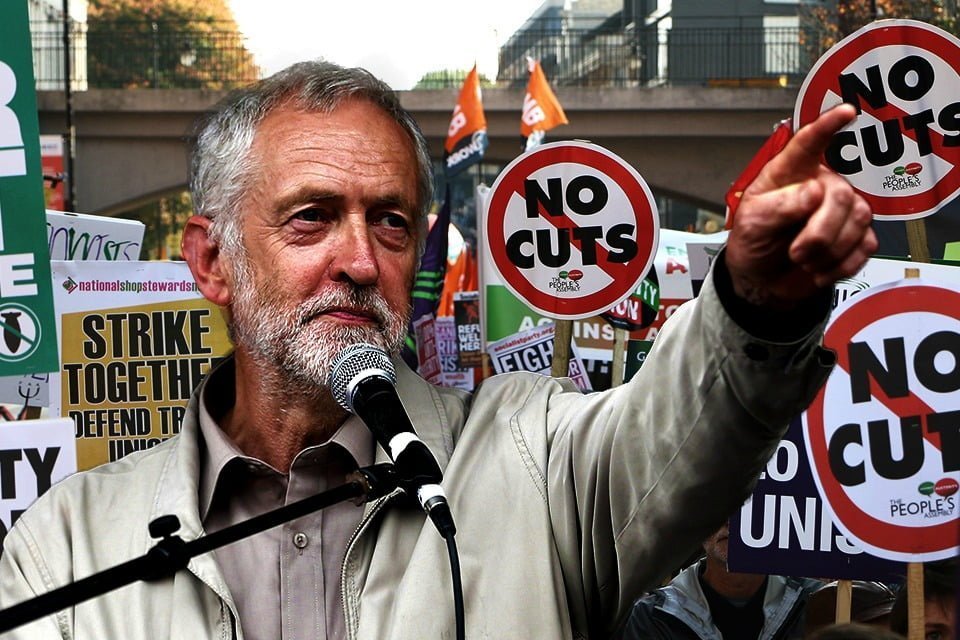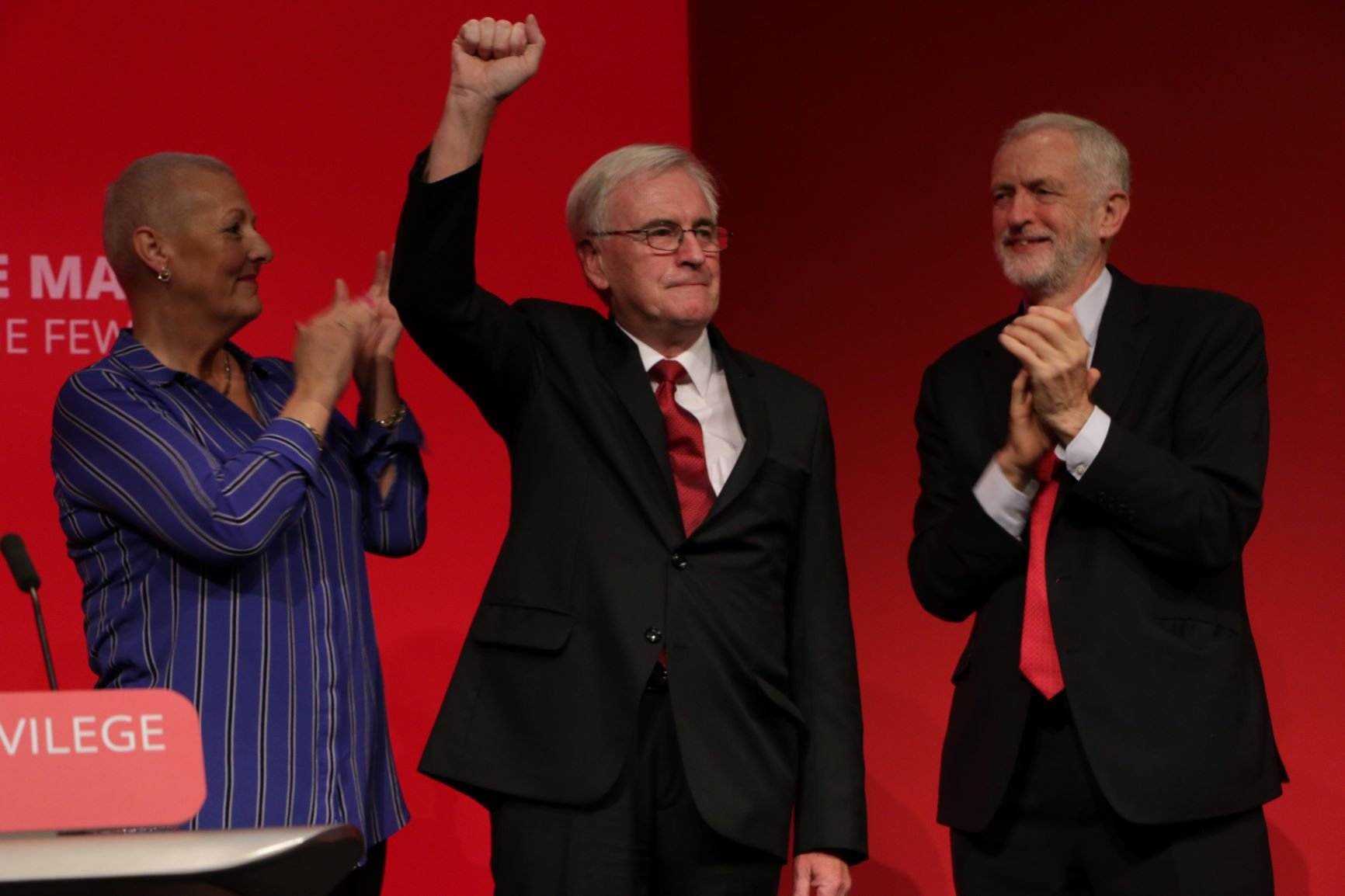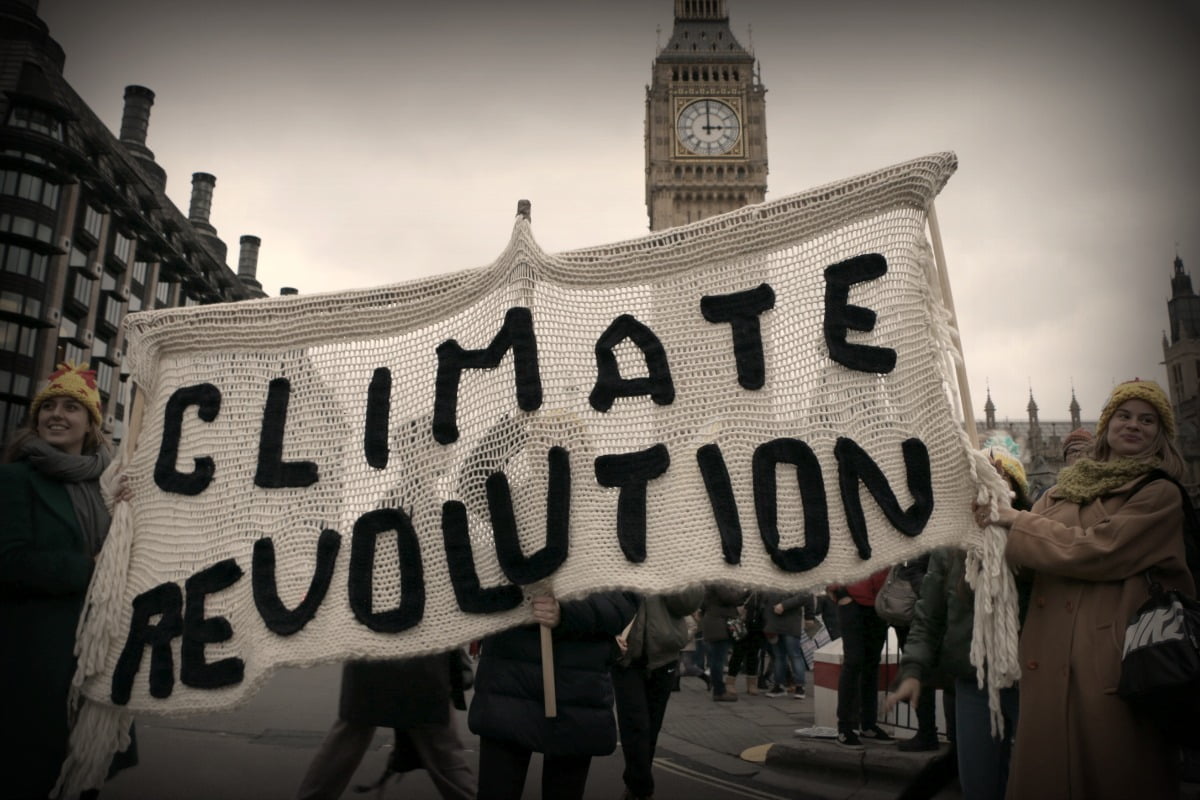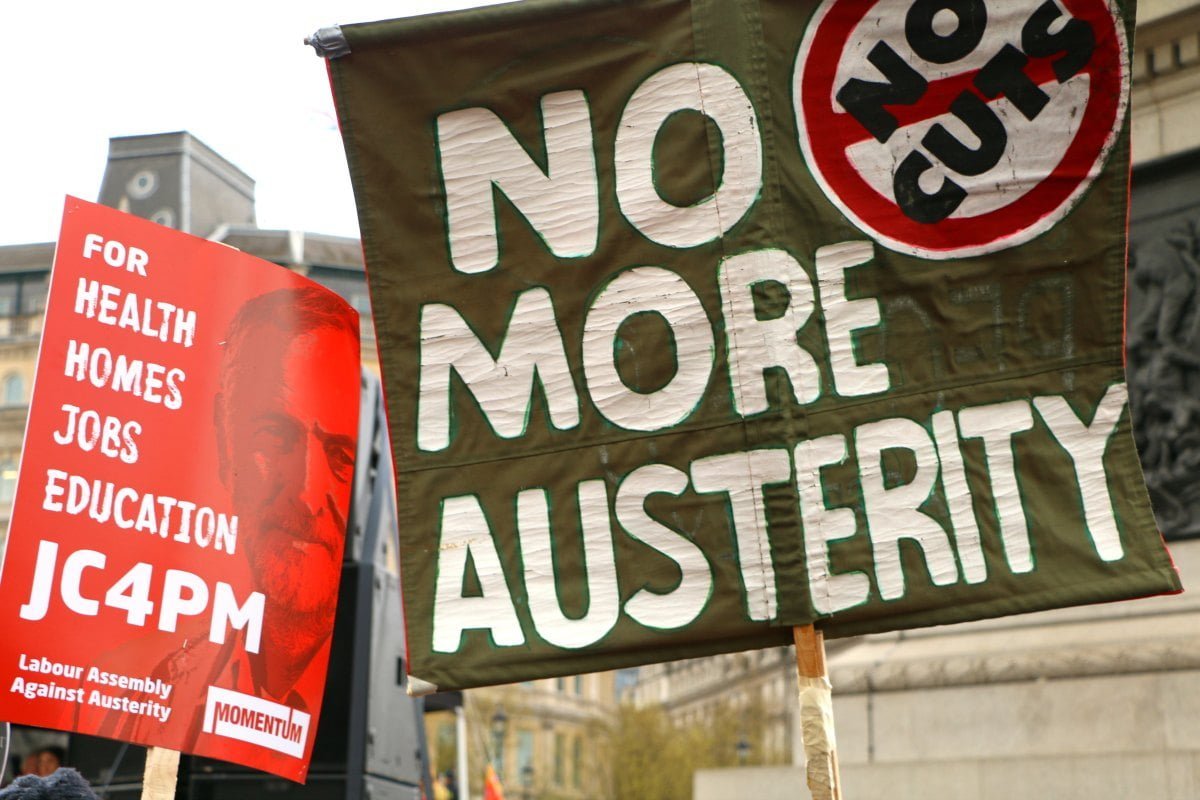Labour’s ‘State of the Economy’ conference showed how far the Party has come in recent times – but also how far we have still to go.
With the prospect of a Labour government on the horizon, hundreds of party members and campaigners gathered at Imperial College London for the Shadow Chancellor’s ‘State of the Economy’ Conference on Saturday 19th May.
Featuring a day of talks and workshops with a range of speakers from politics and academia, the conference focussed on the economic crisis and the policies Labour must carry into government if it is to create an “economic system which delivers fuller and freer lives for all”, as Jeremy Corbyn put it in his opening speech.
That these discussions were being held at an official Labour Party event shows how far the party has come since the election of Jeremy Corbyn as party leader in 2015. Nor will this be the last of these discussions. Local “town conferences” are planned throughout the country, giving many more the opportunity to participate. This is to be welcomed, as it is only as a powerful mass movement, united around a clear programme, that Labour will be able to win.
However, this must be more than just an “academic debate”, as John McDonnell stressed in his closing remarks. There was a palpable sense in the hall that Labour was preparing for power and that these discussions were part of a collective effort to transform society.
But if we are to make this transformation a reality, a further discussion must be had at all levels of the party to clarify what the labour movement must do to avoid the limitations and failings of the past.
Transform the system
 In his opening speech Jeremy Corbyn highlighted the relentless squeeze suffered by workers since the 2008 crash, Corbyn pointed out that real wages in Britain are now lower than before the crisis, and yet the “one thousand richest now have a record total of £724 billion, up 10% in one year”.
In his opening speech Jeremy Corbyn highlighted the relentless squeeze suffered by workers since the 2008 crash, Corbyn pointed out that real wages in Britain are now lower than before the crisis, and yet the “one thousand richest now have a record total of £724 billion, up 10% in one year”.
Condemning our “skewed and unsustainable” economy, which has only delivered “low investment, low quality jobs, low wages and low growth”, Corbyn also emphasised the very real human cost of the relentless attacks on workers, which have characterised the last period. Stress, insecurity at work and not knowing how to make ends meet have contributed to a mental health crisis of epidemic proportions, with a third of GP visits now relating to mental health problems, costing the economy £99 billion per year.
In the face of this crisis, McDonnell noted that people are “waking up”, challenging the “neoliberal regime”, and demanding an alternative. Quoting Tony Benn, he explained that this alternative must be “an irreversible shift of wealth and power towards working people” and “democratising of the economy”.
Corbyn also stressed that Labour’s answer to the crisis must be to “transform our economic system” and “put economic power in the hands of the many”. To do this, a Labour government would consign zero-hours contracts “to the dustbin of history”, scrap anti-trade union laws, take rail, water, gas and post into public ownership, double the size of the co-operative sector, and pump £250 billion investment into local communities. “We’re gonna end neoliberalism!”, as guest speaker, Paul Mason, put it.
New ideas
All of these policies would be a clear step forward for workers in Britain but we must be prepared to discuss their limitations. McDonnell praised the “storm of new thinking” at the conference but in essence, none of these ideas are “new” at all. Co-operatives and local, “municipal socialism” as Corbyn put it can trace their history as far back as the 19th century, and the idea of the state using increased public spending to make up for the failure of private capital to develop the economy is straight out of the Keynesian playbook.
Ultimately what matters is not the novelty of an idea, but whether it works and in truth, many of the “practical and pragmatic” policies presented at the conference will not survive contact with reality unless the leaders of the labour movement are prepared to go considerably further than simply ending “neoliberalism”.
As Corbyn pointed out, as long as our economy is subject to the “uncontrolled forces” of the free market, inequality and exploitation are inevitable. But it is not possible to consciously and democratically plan the economy unless the commanding heights of the economy – the banks and monopolies which control society – are firmly in the hands of the working class.
It is not enough to reclaim services like rail, energy and post, important as they are, while the most powerful levers of the economy are held by the capitalist class. Nor will any number of co-operatives be able to democratise the economy when the giant monopolies call the shots. This is why the expropriation of the banks and monopolies is so crucial: You cannot introduce socialism gradually from below whilst leaving the capitalist system intact, as can be seen from the crisis in Venezuela.
Rather than limiting itself to the renationalisation of public services and utilities, the programme of a future Labour government should be to achieve “the common ownership of the means of production, distribution and exchange”, as enshrined in the party’s 1918 constitution.
Real power
 Finally, there is the all-important question of power. John McDonnell was recently reported as saying his job is to “overthrow capitalism”. We are with him all the way.
Finally, there is the all-important question of power. John McDonnell was recently reported as saying his job is to “overthrow capitalism”. We are with him all the way.
But would a Labour government, enclosed on all sides by the enormous unelected bureaucracy of the Civil Service (recruited directly from the City of London), the House of Lords, the military and the Monarchy, be able to achieve this by peacefully making deep cuts into the profits of Britain’s most powerful businesses?
The state is not a neutral body in society; fundamentally it serves one class – the capitalist class. Even Corbyn’s modest reforms pose a serious threat to the profits of Britain’s parasitical bosses and bankers, and they will be met with ferocious resistance from their well honed establishment.
For this reason, the task of a Corbyn-led Labour government must also be to lead a mass movement of workers directly into politics and dismantle the deliberately anti-democratic structures which keep workers away from real power. In short, we must fight not just for a Labour government, but for a workers’ government to fundamentally transform society!
Labour and the environment
By Nicholas Stevenson
 One of the major crises facing humanity is the crisis of the environment. The anarchy of the market and the profit motive has created a number environmental problems that are threatening society. Some of these problems were floated at the recent State of the Economy Conference.
One of the major crises facing humanity is the crisis of the environment. The anarchy of the market and the profit motive has created a number environmental problems that are threatening society. Some of these problems were floated at the recent State of the Economy Conference.
At the forefront of the debate on the environment is the question of energy, in particular energy generation. There was no shortage of vision regarding this question at the workshop “Economics and the Environment”. The three panellists, Alan Simplson (former Labour MP), Mika Minio-Paluello (Labour Energy Forum) and Rebecca Newsom (Greenpeace), as well as the chair Clive Lewis (Labour MP and part of the Shadow Treasury team), all were in general agreement that Labour needed more radical policies on the environment.
Participants were presented with plenty of examples of projects that were using new technologies to try to the resolve the question of pollution and CO2 emissions. By and large these projects were community or local authority run, involving local communities in the production and distribution of energy with solar, wind and water power. Much of it was taken from various pilot projects in Germany.
Refreshingly, there was little talk of opposing economic growth or raising taxes on consumption, although things that were mentioned by Clive Lewis like the “9 planetary limits” hint at such an approach. The focus was on developing new less environmentally harmful solution based on the latest technology. These solutions should be based around common ownership and local communities. So far, so good.
The problem is not so much what was mentioned, but what was not mentioned. There was much talk about small-scale projects that had developed energy independence for local towns and villages. There was less talk about whether or not such a model would be applicable on a wider national scale, or whether these solutions were actually economically sound. Small-scale energy generation is not a principle, but a question of cost and practicality.
In fact, although the panel was opposed to the big four energy companies, there was little mention about what should be done about them, or the national grid. The panelists thus fell short of calling for what Jeremy Corbyn has called for, which is the nationalisation of the grid (the means of distributing power). In that way, for all the talk of radical solutions, they fell a bit short.
The whole approach is to set up public competition to existing energy suppliers (and this is also echoed in last year’s election manifesto), rather than taking over the existing companies. This begs the question: why? Why not use the existing massive resources of the big 4 in order to transform energy production?
There is of course the question of money, which these companies have plenty of, but also the knowledge and expertise of thousands of their thousands of employees would be extremely useful in developing new technologies. At the very least, by keeping it in private hands, you will have a massive vested interest opposed to the development of any state-owned structure.
The lack of investment in new energy technology is not just a question of the energy producing companies. It also raises the question of the production of means of transportation, where for a very long time car manufacturers and oil companies have resisted alternative fuels, and even sabotaged research into them. Over the past few years manufacturers have contributed to a deterioration in air quality by cheating emissions standards for diesel cars. The same goes for airplane engines, where very little has been done to improve their emissions, which not only produce CO2 but also a raft of other toxic substances that pollute the air.
Finally, there are a raft of companies that produce solar panels, wind turbines and other electricity generating machinery. By putting these companies also in state hands, and sharing knowledge across companies, we could do much to accelerate the development of new technologies, and not just their implementation.
Mika Minio-Paluello from the Labour Energy Forum correctly pointed out that the market and market solutions had failed to solve the problems with the environment, and the other panellists agreed. Yet, they failed to propose decisive measures to break with the market. In fact, like the Manifesto of last year, it hinted at keeping market forces, and only introduce public competitors.
This would fall far short of what is needed. A socialist environmental policy must start from taking the existing resources into the hands of the state, and involving the workers in the sector as well as local communities in developing a plan for a massive investment in the sector.






